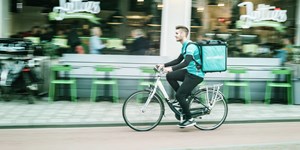Technology to overcome challenges
On and around the massive football pitch in Johan Cruijff ArenA, they shared their ideas on the role of modern technology in solving some of the social and public issues facing urban areas, including the challenges associated with the energy transition or transport. Erik Verhoef, a Professor of Spatial Economics at VU University Amsterdam, homed in one innovative ideas for an accessible and mobile city, while Ellen Nieuweboer (Regional Director for the Southeast Amsterdam borough) walked us through the smart and sustainable developments in this section of the capital.




